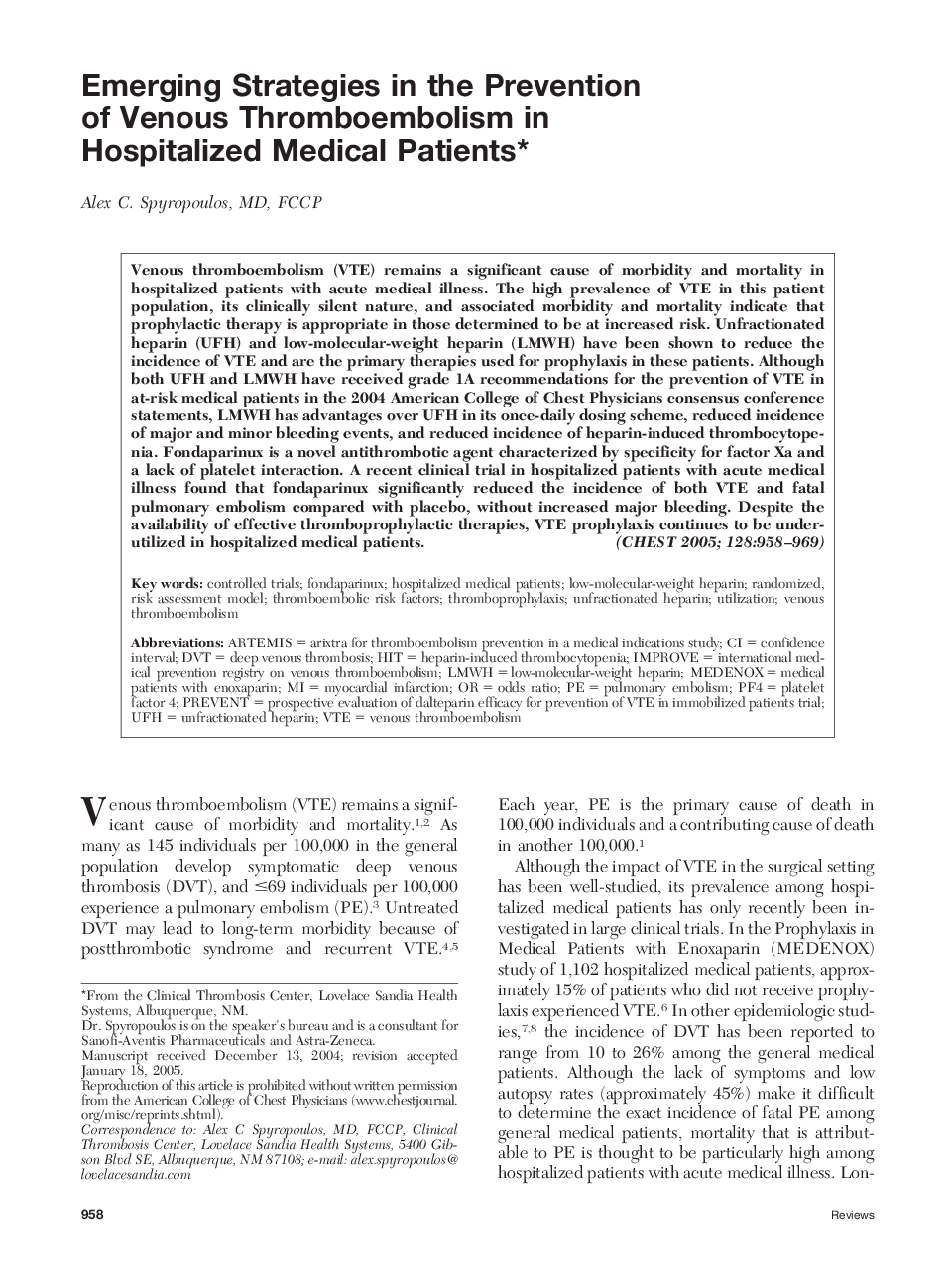| Article ID | Journal | Published Year | Pages | File Type |
|---|---|---|---|---|
| 9162084 | Chest | 2005 | 12 Pages |
Abstract
Venous thromboembolism (VTE) remains a significant cause of morbidity and mortality in hospitalized patients with acute medical illness. The high prevalence of VTE in this patient population, its clinically silent nature, and associated morbidity and mortality indicate that prophylactic therapy is appropriate in those determined to be at increased risk. Unfractionated heparin (UFH) and low-molecular-weight heparin (LMWH) have been shown to reduce the incidence of VTE and are the primary therapies used for prophylaxis in these patients. Although both UFH and LMWH have received grade 1A recommendations for the prevention of VTE in at-risk medical patients in the 2004 American College of Chest Physicians consensus conference statements, LMWH has advantages over UFH in its once-daily dosing scheme, reduced incidence of major and minor bleeding events, and reduced incidence of heparin-induced thrombocytopenia. Fondaparinux is a novel antithrombotic agent characterized by specificity for factor Xa and a lack of platelet interaction. A recent clinical trial in hospitalized patients with acute medical illness found that fondaparinux significantly reduced the incidence of both VTE and fatal pulmonary embolism compared with placebo, without increased major bleeding. Despite the availability of effective thromboprophylactic therapies, VTE prophylaxis continues to be underutilized in hospitalized medical patients
Keywords
Hospitalized medical patientsVTEPF4LMWHUFHArtemisControlled trialsPulmonary embolismMyocardial infarctionHITIMPROVEutilizationVenous thromboembolismDVTDeep venous thrombosisHeparin-induced thrombocytopeniathromboprophylaxisPreventPlatelet factor 4confidence intervalFondaparinuxodds ratiounfractionated heparinlow-molecular-weight heparin
Related Topics
Health Sciences
Medicine and Dentistry
Cardiology and Cardiovascular Medicine
Authors
Spyropoulos MD, FCCP,
